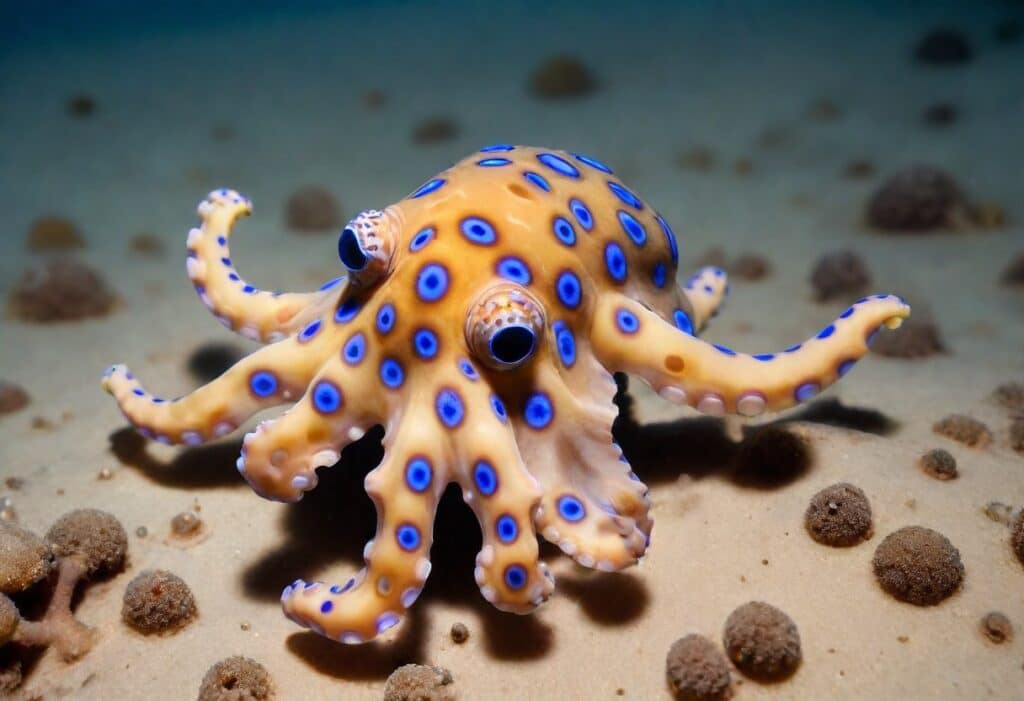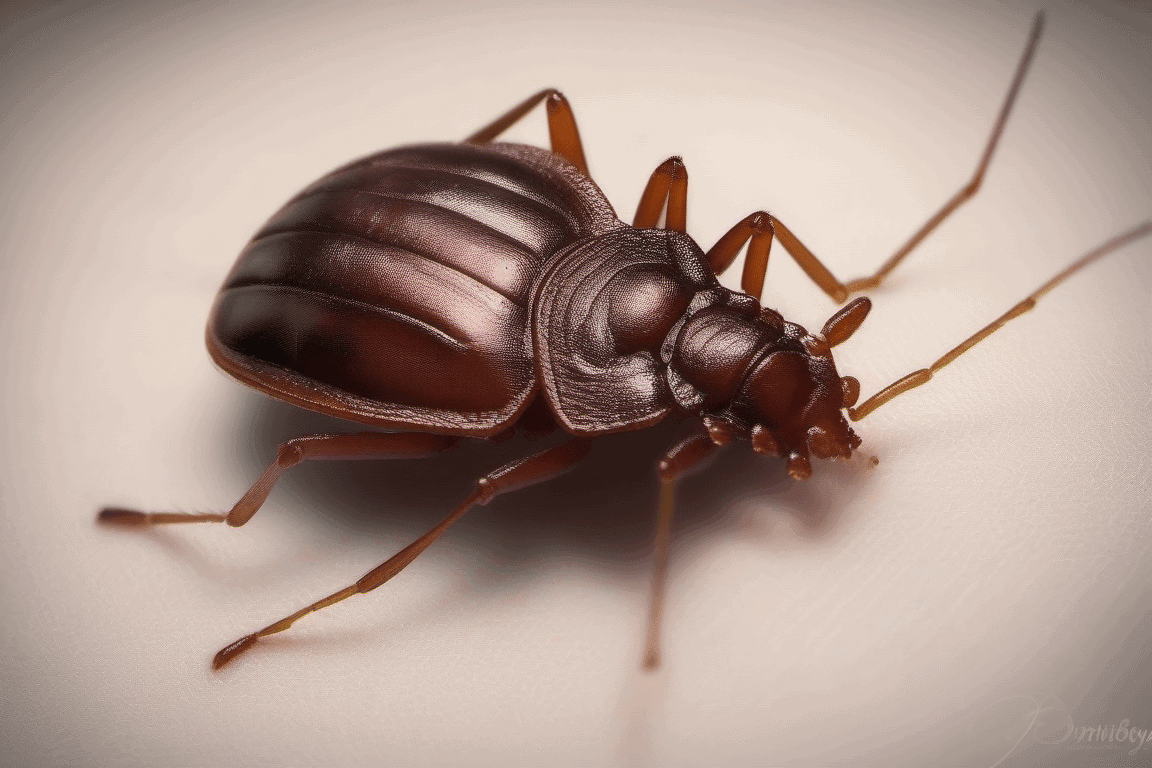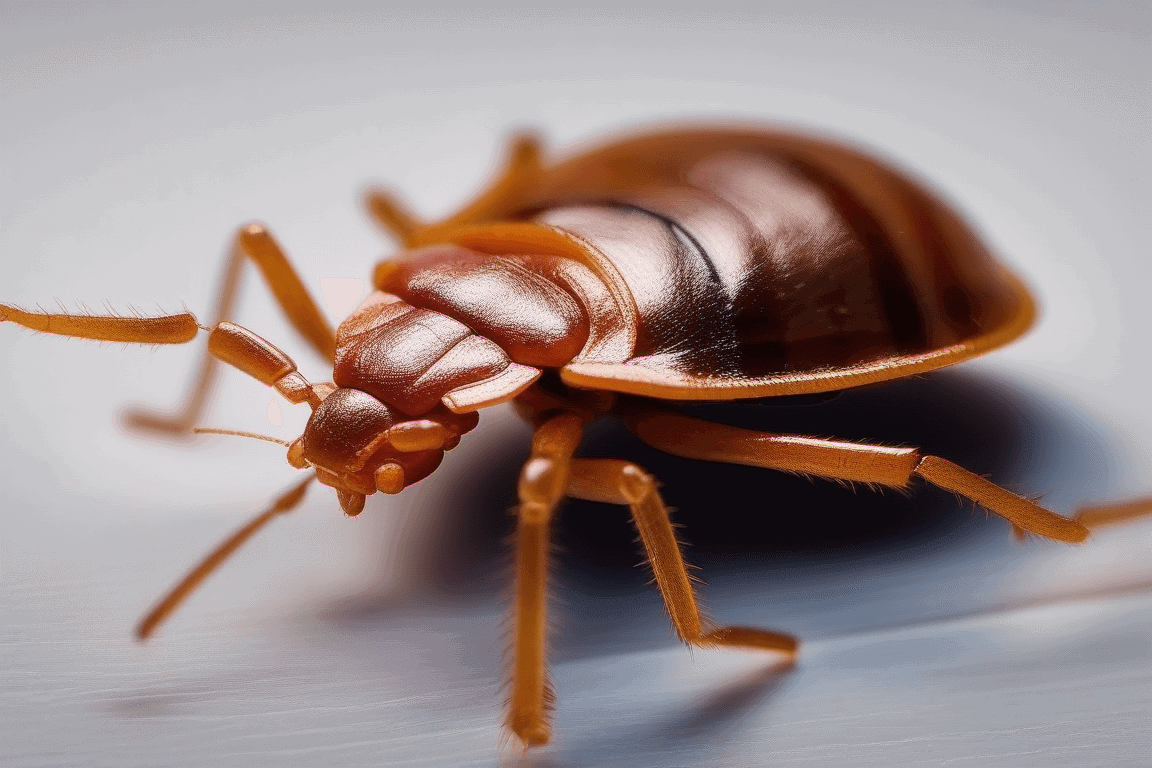Due to the fact that these creatures are one of the most venomous marine animals globally, their bite can be deadly.
If you’re ever unfortunate enough to be bitten by a blue-ringed octopus, you’ll need to know what to do. In this article, we’ll show you what happens if you get bitten by a blue-ringed octopus, and we’ll also tell you how to treat the bite if it does occur.
Table of Contents
What is a Blue-ringed Octopus?
A blue-ringed octopus is a type of octopus found in Australia, New Zealand, and other areas of the Pacific Ocean. The blue-ringed octopus is sometimes referred to as the deadly blue-ringed octopus.
This name comes from the rings that are located around its body. These rings can be bright blue, purple, or sometimes even red.
The rings are the pigment of the octopus’s skin, and they help keep it hidden in the water. They help the octopus blend in with its surroundings – the coral reef.
What Happens if You Get Bitten by a Blue-ringed Octopus?
1. Local swelling and redness
Depending on the location of the bite, swelling and redness can be observed for almost a day. Swelling is caused by blood vessels dilating to allow blood to flow more freely.
Swelling also occurs from the initial bite. On the other hand, redness is caused by the release of histamines which causes blood vessels to dilate even more.
Ice packs can be placed on the area to reduce swelling and redness to treat these symptoms. You can also treat the symptoms by applying an antihistamine cream for the redness.
2. Local itching and burning
The area turns red and begins to itch. This symptom is caused by your body’s reaction to the poison in the octopus’s venom.
The redness and itching result from the histamines being released into the skin. Histamines are released when the octopus’s venom is injected into the skin, and the burning and itching sensations are a reaction to the injection.
You can apply antihistamine cream to the area to treat this symptom.
3. Severe blistering
When the poison is injected into the skin, it causes severe blistering. When the toxin enters the bloodstream and moves to the skin, it causes severe blistering.
The skin will be susceptible to touch, and even gentle pressure can cause blistering. Blistering can also occur when you feel or pick at the blistered area.
Blistering can be severe enough to cause permanent scarring. The best way to treat blistering is to apply an antihistamine cream.
You can also use a moisturizing lotion on the skin to heal and soothe the affected area.
4. Nausea and stomach upset
This condition is one of the most common symptoms of being bitten by an Octopus. This condition is caused by the toxin being injected into the bloodstream.
The venom injected into your bloodstream will travel to your stomach and cause nausea and vomiting.
If you have any of these symptoms, you should seek medical attention.
5. Eye irritation and swelling
This symptom is caused by the toxin being injected into the bloodstream. In most cases, it only causes minor irritation. However, it can cause permanent damage to your eye in some cases.
The toxin can cause swelling and inflammation of the cornea.
This condition is known as a “corneal ulcer.” If you experience these symptoms, you should seek medical attention immediately.

6. Sudden hearing loss
The blue-ringed octopus has venom that contains tetrodotoxin. Tetrodotoxin is a potent substance that can be lethal to humans.
When the poison from the venom of a blue-ringed octopus reaches your body, it causes sudden hearing loss. The toxin acts on the nerves in your ear.
It paralyzes the nerve cells that send messages to your brain and causes them to stop sending messages. It is thought that this prevents you from being able to hear sounds.
To treat the sudden hearing loss, doctors may give you cortisone, a drug that stops the action of the venom.
It is believed that the toxin causes a temporary hearing loss, but in some cases, permanent damage to the nerve cells in your ear can occur.
7. Sudden vision loss
This octopus’ venom can also cause sudden vision loss because it destroys your optic nerve. When this happens, you lose your ability to see. The virus can cause damage that leaves you blind or partially sighted.
Because the poison cause inflammation, it destroys brain cells in the area of your optic nerve.
This nerve then dies and cannot transmit visual information to your brain, which results in vision loss.
You can treat the infection with antibiotics and try to prevent further damage to your optic nerve by wearing protective goggles or glasses.
8. Severe Headache
The blue-ringed octopus bite can cause a severe headache because it contains venom that causes painful swelling of the tissue around your brain and eyes.
The pain can be so intense that it can cause you to pass out and can cause pressure on the spinal cord, leading to paralysis.
The bite can also cause fever and flu-like symptoms. If you are bitten, you should seek medical attention as soon as possible to prevent permanent damage to your brain or vision.
9. Slow heart rate
The blue-ringed octopus can cause a rapid rate of heartbeat and heart palpitations.
It may cause you to feel lightheaded, dizzy, or have an irregular heartbeat.
If you experience these symptoms after being bitten, seek medical attention immediately.
10. Seizures
When you get bitten by a blue-ringed octopus, you may have a seizure.
The toxin from the bite can cause changes to your brain chemistry. The toxin can cause your brain cells to overstimulate, which causes an attack.
It is essential to recognize the symptoms of a seizure and seek medical help as soon as possible.
Conclusion
The blue-ringed octopus is a fascinating but harmful creature and should be treated with caution.
The octopus may bite at any time, so it is best to contact a doctor while an octopus is nearby.
Many people have been bitten and lived to tell the tale, so it would be wise to follow these simple guidelines if caught in the unfortunate situation of being bitten by an octopus.











